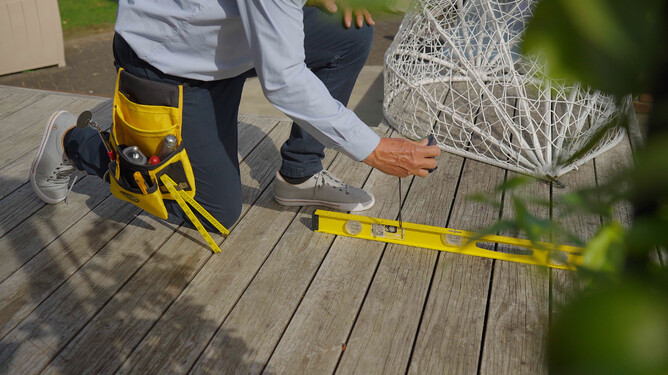New Zealand's building regulations have always prioritised safety and quality in construction. With recent updates to the Code of Compliance (CoC), it's crucial for DIY enthusiasts and homeowners to understand the implications of these changes, particularly the necessity of having DIY work reviewed and signed off by a qualified expert.
Understanding the New Code of Compliance Rules: The updated CoC rules in New Zealand are designed to ensure that all building work, whether done by a professional or a DIY enthusiast, meets higher safety and quality standards. These changes include stricter guidelines on materials, methods, and the documentation required for building projects.
The Importance of Compliance:
Safety: The primary purpose of the CoC is to protect the health and safety of individuals by ensuring that all construction work is up to standard. This is particularly critical in areas prone to natural disasters such as earthquakes and floods.
Legality: Adhering to the CoC rules is not just best practice; it's a legal requirement. Non-compliance can result in penalties, fines, or even forced deconstruction of non-compliant structures.
Insurance: Compliance with the CoC is often a prerequisite for insurance policies on buildings. Non-compliant work can lead to denied claims, leaving homeowners vulnerable to significant financial losses.
Why DIY Work Needs Expert Sign-Off:
Complex Regulations: The building code can be complex and difficult for amateurs to fully grasp. An expert can ensure that your work complies with the latest regulations, avoiding legal issues down the line.
Quality Assurance: Professionals bring a level of precision and expertise that typically surpasses DIY skills. Their sign-off is a stamp of quality and correctness.
Future Proofing: When it comes time to sell your property, having documentation that DIY improvements were reviewed and approved by a certified expert can significantly boost property value and buyer confidence.
How to Ensure Your DIY Work is Compliant:
Consult Before You Construct: Before starting any significant DIY project, consult with a building expert. This could be a licensed builder, a structural engineer, or a building compliance consultant.
Regular Inspections: Ensure your work is regularly checked by a professional during the DIY process, not just upon completion. This can prevent costly mistakes and ensure adherence to the CoC.
Adhere to Documentation Requirements: Maintain thorough records of your building process, including purchases, plans, and communications with experts. This documentation will be crucial if your project needs to be reviewed by local council authorities.
Use Approved Materials: Always use materials that meet New Zealand standards. This not only ensures durability and safety but also compliance with the CoC. Check the New Zealand Building Code or consult with a professional to verify that your materials are appropriate.
Final Compliance Check: Once your project is complete, have it inspected by a qualified building inspector. This final check is crucial to ensure everything is up to code and you receive the necessary compliance certifications.
Benefits of Expert Involvement in DIY Projects:
Risk Mitigation: Reduces the likelihood of structural failures and legal complications.
Enhanced Safety: Ensures that the structural integrity of your DIY project protects both you and future occupants.
Increased Property Value: Compliant and professionally verified work can significantly increase the market value of your property.
Peace of Mind: Knowing your project meets all legal and safety standards allows you to enjoy your achievements without worry.
In New Zealand, taking a DIY approach to building and renovation can be rewarding, but it comes with significant responsibilities. The recent updates to the Code of Compliance make it even more essential to engage with professionals throughout your project. By doing so, you not only ensure your project's success but also safeguard your investment. Remember, when it comes to building and renovation, cutting corners can cost more than you save. Compliance and expert advice are your best tools for a successful project.
For more information on navigating the Code of Compliance or to consult with a building expert, visit our website or contact us! Let’s make sure your next DIY project is done right - safe, compliant, and ready for the future.




